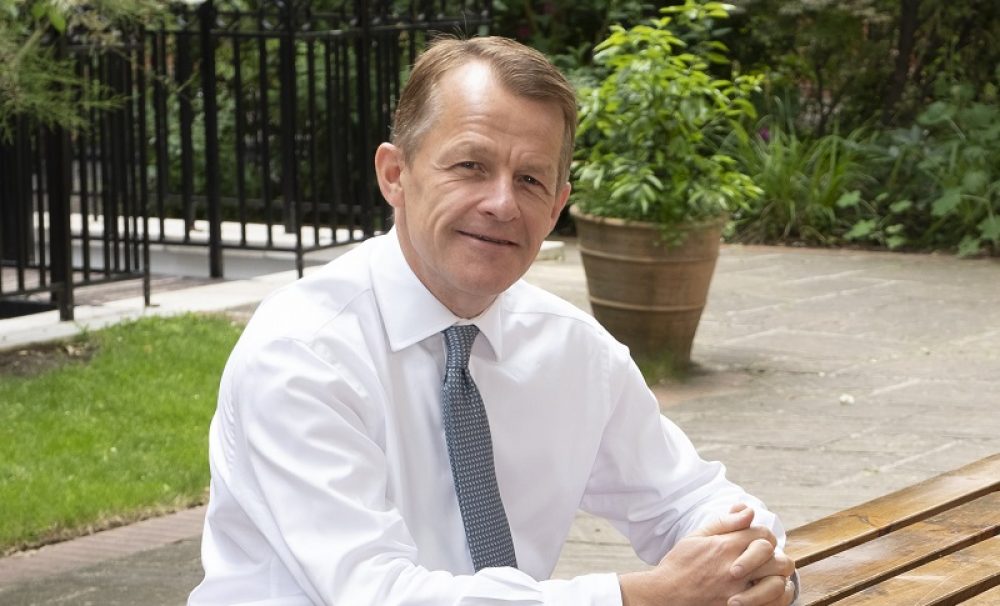A former schools minister has called for the admission age at university technical colleges to change to 16, after damning new research faulted their academic progress and ability to recruit and retain learners.
The latest report from the Education Policy Institute has laid bare the major issues at the 14-19 providers, including high drop-out rates and severely low Ofsted grades.
It follows years of FE Week investigations into the troubled UTCs, including dramatic drops in learners, providers dropping the brand and being forced to hand back money because of low pupil numbers, plans to switch to recruiting from age 13 and even UTC architect Michael Gove admitting the programme had failed.
David Laws, who was schools minister when the institutions began rolling out under both Mr Gove and Nicky Morgan between 2012 and 2015, is now executive chairman of the EPI and said the government should stop funding new UTCs until a review is undertaken into how best to deliver a “sustainable and effective” programme.
However, Lord Baker, head of the Baker Dearing Trust which supports the small, technical-focused institutions, said UTCs should not be compared to a “normal” school and insisted many were “oversubscribed”.
Since 2011, the Department for Education has allocated almost £330 million of capital spending to the UTC programme. In this time, 59 UTCs have been established, although eight of these have since closed and one converted to an academy. Another, UTC@Harbourside, will close in August 2019.
UTCs have struggled with falling student numbers, with the Institute for Public Policy Research reporting that 13 failed to fill half or more of their Year 10 places in 2015-16, with 39 per cent of all Year 10 places at UTCs remaining vacant that year. In 2018, 20 open UTCs had fewer students than in the previous year.
“The reality is England has a pre- and post-16 system,” the report said. “This means that admission at age 14 is not the norm and has failed to convince enough students, parents, carers and schools of its benefits, and there is no evidence that participation in UTCs at age 14 is likely to rise significantly without more fundamental changes to the education system.”
It noted that over half of UTC students do not continue from key stage four into key stage five in the same institution, and criticised the “overall poor performance” in academic qualifications at the institutions.
Although 40 per cent of students in secondary schools enter all the components for the English baccalaureate (English, maths, sciences, geography or history and a language), just under 15 per cent of learners in UTCs do. Twenty-four per cent of secondary school pupils will achieve all components including a grade four in English and maths, but just 3.8 per cent in UTCs will.
On average, students at UTCs leave with a whole grade lower in academic qualifications than those in other institutions, according to the report.
However, UTCs do well in technical and vocational qualifications. Those studying level three technical qualifications achieve higher grades than learners elsewhere, but they are also more likely to drop out with a retention rate of 79 per cent rather than over 90 per cent.
Learners at UTCs also do “substantially better than average” at progress in maths and English GCSE retakes.
Twenty per cent of UTC learners take up apprenticeships, compared to just seven per cent of all level three students. This suggests that the close links with employers “benefit” both students and employers, according to the report.
Over half of UTCs inspected by Ofsted are rated ‘inadequate’ or ‘requires improvement’, compared to less than a quarter of all institutions. Four per cent are ‘outstanding’, compared to 22 per cent of all institutions.
Mr Laws said the “poor performance” of UTCs is “about the quality of learning and the engagement of students.
“The government should not fund further UTC expansion until a review is undertaken and steps are put in place to deliver a sustainable and effective programme.”
However, Lord Baker said UTCs have a “challenging” intake, and “Baker Dearing is proud that UTCs transform their students’ life chances.”
Julian Gravatt, deputy chief executive of the Association of Colleges, urged caution at the EPI’s recommendations, describing the 16-to-18 sector as “already a chaotic and underfunded market”.
Geoff Barton, general secretary of the Association of School and College Leaders, said it was “worth examining” changing the admissions age.
“But it might have been a lot easier at the outset simply to have provided additional funding and places in further education colleges which already run very successful technical education programmes,” he added.
A Department for Education spokesperson said: “We have a diverse education system and University Technical Colleges are an important part of that, with the best providers teaching people the skills and knowledge that will help them secure good jobs in specialist technical sectors.”


The UTC model hasn’t worked as hoped by those in the driving seat, but it was always a big ask and the numbers never stacked up. There was never going to be a surge in additional young people to satisfy the needs of all post 14 provision and to invest this level of money on what was essentially a gamble, was irresponsible.
Stop throwing money away, the UTC model has more chance of success if we use current established high quality provision.